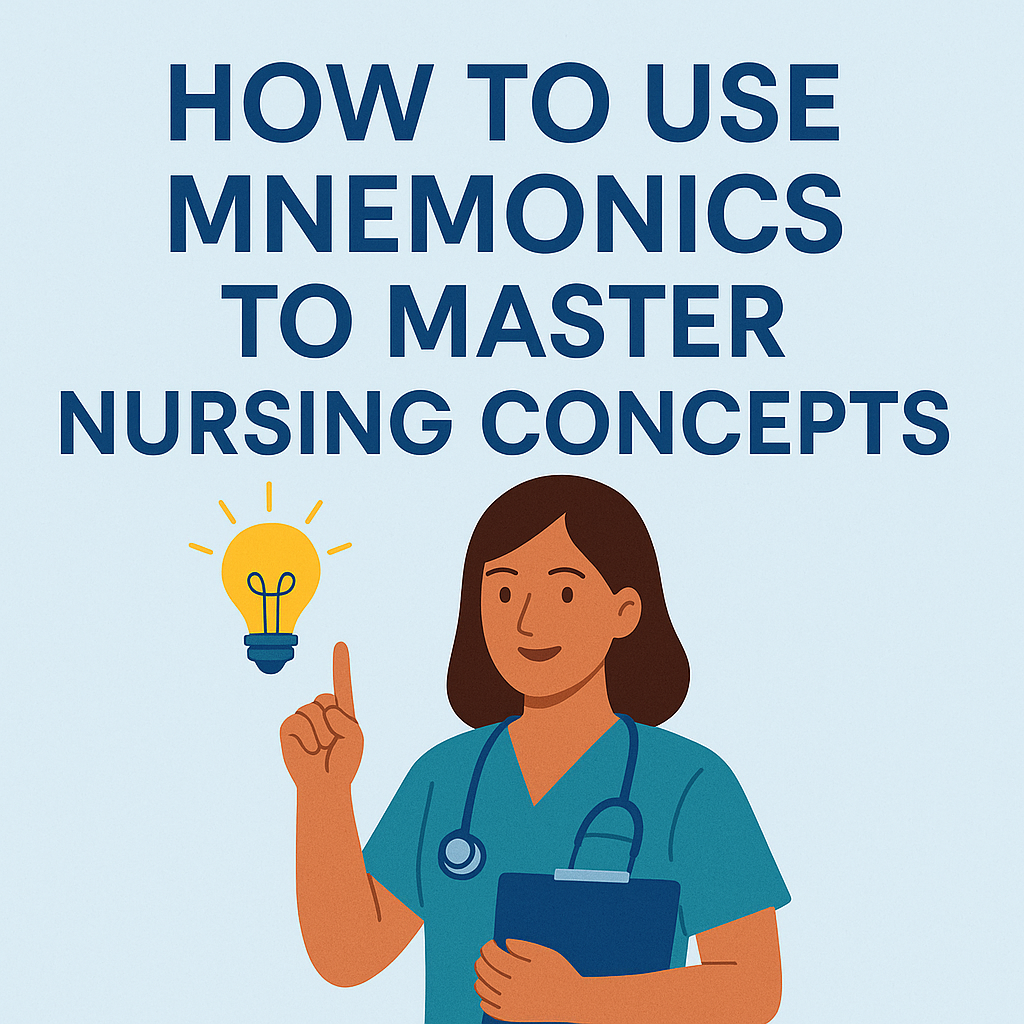Nursing school can feel overwhelming with the sheer volume of information you’re expected to learn and retain. From pharmacology to pathophysiology, acronyms and mnemonic devices can be powerful tools to make studying easier and more efficient. In this article, we’ll explore how to use mnemonics to master nursing concepts, improve recall, and boost exam performance.
🔍 What Are Mnemonics?
Mnemonics are memory aids that use patterns of letters, ideas, or associations to help you remember information. In nursing, mnemonics simplify complex topics and make them easier to recall under pressure—especially during exams or clinical practice.
📚 Benefits of Using Mnemonics in Nursing
- Improves Memory Recall – Easier to remember large chunks of info.
- Saves Study Time – Reduces the time needed to memorize content.
- Boosts Test Performance – Helps recall details accurately under stress.
- Enhances Learning Engagement – Creative and fun way to study.
🧠 Types of Mnemonics for Nursing Students
1. Acronyms
Create a word using the first letter of a list of items.
- Example: MONA for heart attack treatment:
- Morphine, Oxygen, Nitroglycerin, Aspirin
2. Acrostics
Make a memorable sentence using the first letters of words in a list.
- Example: “Some Lovers Try Positions That They Can’t Handle”
- → For carpal bones: Scaphoid, Lunate, Triquetrum, Pisiform, Trapezium, Trapezoid, Capitate, Hamate
3. Rhymes and Songs
Turning information into a rhyme or jingle helps with long-term memory.
- Example: “Righty-tighty, lefty-loosey” – remembering IV or tubing turns.
4. Chunking
Group info into smaller “chunks.”
- Example: Break 12 cranial nerves into groups based on function (sensory, motor, or both).
5. Visualization
Associate information with vivid images.
- Picture a banana for potassium (K+) to recall hypokalemia symptoms.
🩺 Common Nursing Mnemonics by Subject
💊 Pharmacology
- SLUDD for cholinergic effects:
- Salivation, Lacrimation, Urination, Digestion, Defecation
❤️ Cardiac
- ABCDE for acute coronary syndrome:
- Aspirin, Beta-blocker, Clopidogrel, Dual antiplatelet therapy, Enoxaparin
💉 Electrolytes
- MURDER for signs of hyperkalemia:
- Muscle cramps, Urine abnormalities, Respiratory distress, Decreased cardiac contractility, ECG changes, Reflexes (hyper or absent)
📝 Tips to Create Your Own Nursing Mnemonics
- Keep it Simple – Use short words or catchy phrases.
- Make It Personal – Use humor or emotional connections.
- Draw or Visualize – Sketch out a visual aid with colors or symbols.
- Practice Often – Repetition strengthens retention.
- Teach Others – Sharing your mnemonic helps reinforce your understanding.
📌 Final Thoughts
Using mnemonics to master nursing concepts is a smart, time-saving strategy. Whether you’re preparing for the NCLEX or managing your day-to-day coursework, mnemonics can make complex topics more digestible and help you recall essential information when it matters most.
- Start incorporating mnemonics into your study sessions today—you’ll be amazed at how much easier nursing school becomes!

